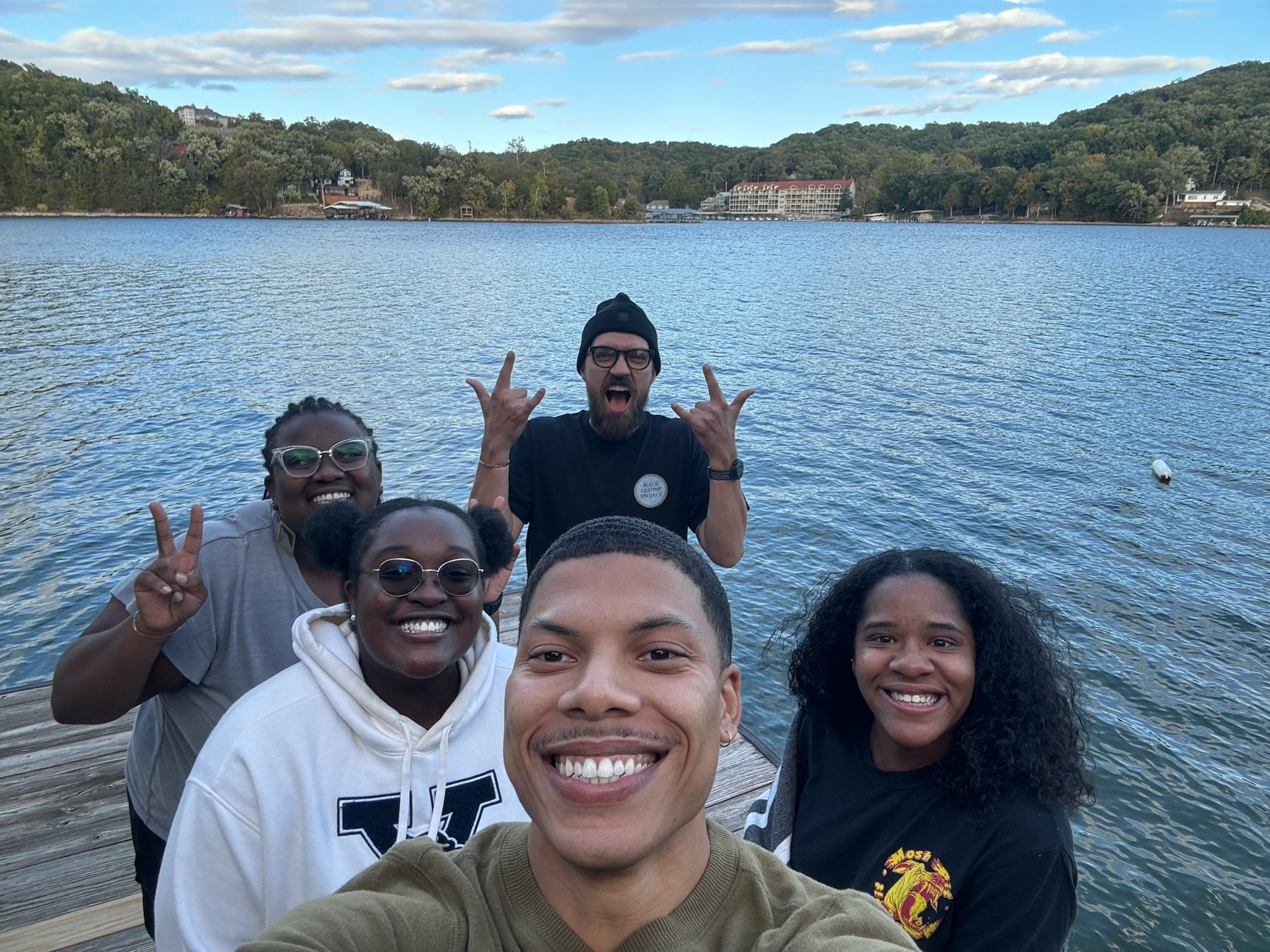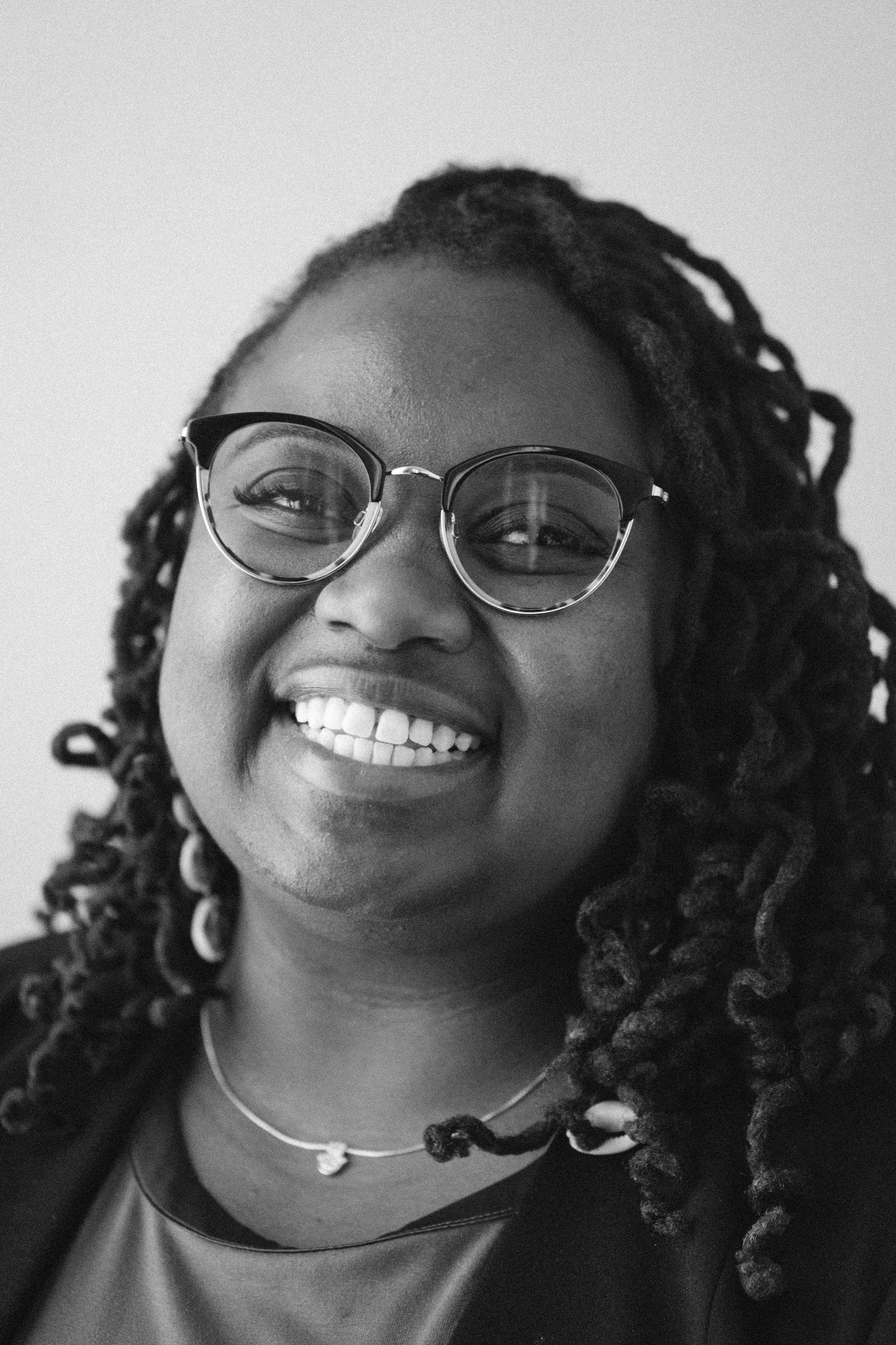
Meet Our Team
Dr. Chelsey Carter
Co-Principal Investigator
Chelsey R. Carter is an Assistant Professor at Yale School of Public Health with an affiliation in the Department of Anthropology. She is a native of St. Louis and a Black feminist anthropologist with specializations in medicine, public health, and race. Her research broadly examines the relationship(s) between anti-Black racism, class, gender, and chronic illness in the United States. Chelsey has taught cultural anthropology, medical anthropology, and ethnography at UMSL, Webster University, WashU, and WashU’s Prison Education Project. You can learn more about Chelsey’s work, writing and activism at www.crcarter.com.
Dr. Brett Maricque
Co-Principal Investigator
Brett Maricque is an Assistant Professor of Genetics at Washington University School of Medicine (WUSM) and a faculty member at the McDonnell Genome Institute. Prior to joining the WUSM faculty, he was the Coordinating Manager of Young Adult Services at NYC Health + Hospital Correctional Health Services, where he coordinated mental and physical health services and delivered project-based education programs to adolescents and young adults that were incarcerated. Brett has taught college-level human genetics, genomics, and data science courses in the Illinois and New York state prison systems.
Maame-Owusua Boateng
Research Coordinator
Maame-Owusua Boateng is a proud child of Ghanaian immigrants. She holds an Associate Degree in General Studies from Northern Virginia Community College, a Bachelor of Science from Virginia Tech in Clinical Neuroscience with a minor in Medicine and Society, and has just recently completed her Masters of Public Health at Yale School of Public Health in Social Behavioral Sciences with concentrations in Global Health and US Health and Justice. She has a passion for cultural humility in medicine, eliminating race-based medicine, and studying anti-Blackness and medical mistrust and examining race disparities in neurology and neuroscience. She hopes to get an MD/PhD in medical anthropology or sociology to combine both science and social sciences in the care she gives. Her long-term goal is to become a medical doctor and give back to her home country, Ghana,while also giving care in the United States. She wants to build a clinic in Ghana and provide care to the community.
Nautica Alexander
Research Assistant
Nautica is a dedicated research assistant with a background in healthcare and a passion for working with young people. Originally from Texas, she earned her degree from the University of Health Sciences in St. Louis, MO, where she was also a standout soccer player. Beyond her research work, Nautica is deeply committed to supporting children with disabilities, currently teaching and mentoring young individuals with special needs. She also shares her love for soccer as a high school girls’ coach, inspiring the next generation both on and off the field.
Imani Myton
Project Coordinator
Imani Myton is a dynamic community organizer and tech newbie. Her background in Early Childhood Education has equipped her with a keen understanding of communication and engagement strategies. This foundation enables her to create interactive and engaging events that cater to diverse audiences and ensure a memorable experience for all participants. She is committed to fostering inclusive spaces where individuals of all backgrounds feel heard, valued, and included.
Adrian Octavius Walker
Project Photographer
Adrian Octavius Walker is a mixed media artist/photographer whose work seeks to expand the canon surrounding the nuances of Black life through tenderness and grit. His fascination with the tangible is the driving force to expand his visual language through various materials. Walker’s passion lies in using his practice to platform critical discourse around the imagination in black nostalgia. His work casts questions that inspire the viewer to investigate their own biases and opportunities for community engagement. Adrian’s approach to both still photography and sculpture is rooted in his commitment to archiving Black stories for the future. Ultimately, Adrian uses his practice as a space to discover, document, and reminisce about the cultural impact of Black life in America. You can learn more about Adrian’s work at www.adrianowalker.com.












